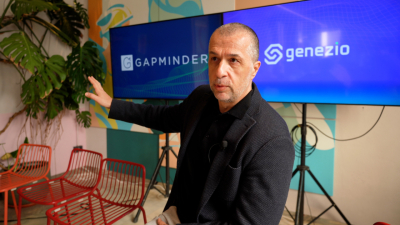John Ashcroft: The provision of private pensions in countries with relatively immature financial markets and systems, such as Romania, will always be more problematic than elsewhere, as the risks from investing in domestic markets are greater and more intense (and hence costly) regulation and supervision is appropriate.
There is a difficult balance to be struck in public policy between allowing pension institutions to invest more abroad, where deeper and more mature markets can be accessed, and using private pension capital as a means to build and strengthen domestic markets. Unless public policymakers are willing to allow extensive use of a wide range of domestic foreign markets the long term returns to the beneficiaries of private pensions are likely to be constrained.
Poor financial education may also be a constraint (and indeed is an issue for all pension systems, not just the Romanian system). Policyholders (plan members) throughout the world are notoriously poor at understanding risk, and often unduly risk averse.
There is an imperative on pension policymakers and providers to look after their longer term interests and achieve a better balance of risk and reward than the members might choose left to their own devices. Otherwise investment choices could be made that still further reduce long term rewards (or alternatively as is found in the UK lea to excessive risk), and hence security in retirement.
Wall-Street: Is the multi-pillar World Bank scheme for private pensions tailored for the CEE economies / Romania, or is it even suitable? Please explain.
John Ashcroft: The World Bank model was clearly designed for countries, such as those in CEE, with immature financial markets and pension systems that are either unsustainable or do not offer decent replacement rates in retirement. This would appear to be applicable to Romania.
I see nothing wrong with the model in principle. But, the way it has been implemented varies greatly and may have resulted in it becoming less suitable in some cases.
In particular, the concept of building a second pillar which substitutes for or substantively augments the unfunded first pillar, requires that substantial funds are accumulated in the second pillar and are invested to obtain good long term returns.
You will know better than I whether this is the case in Romania. But, even where the system has not been optimized for this purpose, simply putting the second pillar in place is a good first step – subsequent revisions can progressively improve its effectiveness.
Wall-Street: What is the cultural influence on private pensions systems, in the CEE region and in countries like Romania?
John Ashcroft: There is a poorly developed culture of private savings for retirement in the CEE countries arising from a, no longer sustainable, assumption that the State will always provide (a phenomenen not totally absent from the UK either). There is inevitably also limited trust in financial institutions. The regulation and supervision of private pensions needs to take these factors into account.
Wall-Street: What could be (significantly) improved in such a multi-pillar World Bank model, to make it more efficient for its participants?
The main priority for improving the way the World Bank model is implemented is progressively to increase contribution rates and relax those investment and rate of return restrictions that can interfere with the optimization of the risk return trade-off.
Wall-Street: The financial crisis did not bypass Romania. As an anti-crisis measure, this year the authorities from Bucharest decided to freeze 2nd pillar contributions at 2% of employees' gross income, instead of increasing to 2.5%, as stated by the pension reform law. What are your comments on such a decision, on long term perspective?
John Ashcroft: I could not comment directly in the Romanian case, not knowing what other public policy imperatives are in play, but a general observation would be that the financial crisis has impacted all forms of retirement provision including the sustainability of the first pillar.
It is likely to be a false economy to divert funds away from the second pillar that can play an important part in longer term retirement security and financial stability. I would also note that even 2.5% is well below the level generally accepted as necessary to produce a meaningful income in retirement. .
Wall-Street: In this ‘frenzy’ created by the financial crisis there are also voices saying that pension funds should “guarantee pensions” – i.e. guarantee annual returns above inflation, to protect participants, and that this inflation guarantee should be imposed by law. Would this really be in the benefit of the participants (is it form this point of view a costs problem)? Is this kind of guarantee common or even existent in any private pensions system similar to the Romanian one?
John Ashcroft: Guarantees are not unknown in other pension systems, although only a few systems guarantee more than the nominal balance, and there have been notable examples (e.g Hungary) of countries moving away from guarantees.
The problem with guarantees is that they require extensive reserves and hence drive conservatism in investment at the expense of long term returns. They may also impact upon competition in the market.
The sort of guarantee referred to above is likely to be self-defeating, with most beneficiaries receiving less pension than otherwise.
Wall-Street: When the 2nd pillar was launched in Romania in 2007-2008, the value of the premiums was the lowest among CEE countries. Is the current level enough or even feasible for the pension companies to be able to invest?
John Ashcroft: So long as enough people are paying premiums, pension companies should still be able to invest effectively. But, the low level of premiums does mean that the ultimate pension benefit will be very low, and indeed that it may prove infeasible to provide life annuities to members when they retire.
Wall-Street: Could inflation guarantee be considered an absolute return provision? How common is absolute return guarantee imposed by law in DC private pensions systems?
John Ashcroft : Inflation guarantees are virtually unknown in DC systems because they are so expensive to make. Guarantees are required in the UK DB (not DC) system and have, it has been estimated added 70-80% of the cost of providing a pension compared with a system (such as in the Netherlands) where inflation indexing is an aspiration.
In a DC system, where the employer cannot be obliged to make up the difference, the guarantee is effectively provided by the policyholders who would pay heavily for the security they are buying. Indeed, the position could be even worse than in the UK, unless the Romanian Government follows the UK example of issuing index-linked government securities to enable pension companies to hedge the risk.
Wall-Street: What is the best strategy to balance the risk-return tradeoff in this hostile financial environment not only for pension companies, but for any other (institutional) investor?
John Ashcroft: This is a very difficult question, as just about all asset classes have moved negatively. For those of us not possessing a crystal ball, my sense is that the best (or least bad) approach is to maintain a well diversified portfolio, and to avoid selling at what is, hopefully, the bottom of the market.
Photo: Cafe PR Hungary
Citeste si:
Calculator Salariu: Află câți bani primești în mână în funcție de salariul brut »
Te-ar putea interesa și:




















































































![HR [PLAY] Tech Workout - 11...](https://www.wall-street.ro/image_thumbs/thumbs/973/x973fe0a3888d417feff63de42e814180-260x260-00-65.jpg,qv=1713563256.pagespeed.ic.8JsqLrmwPf.jpg)









